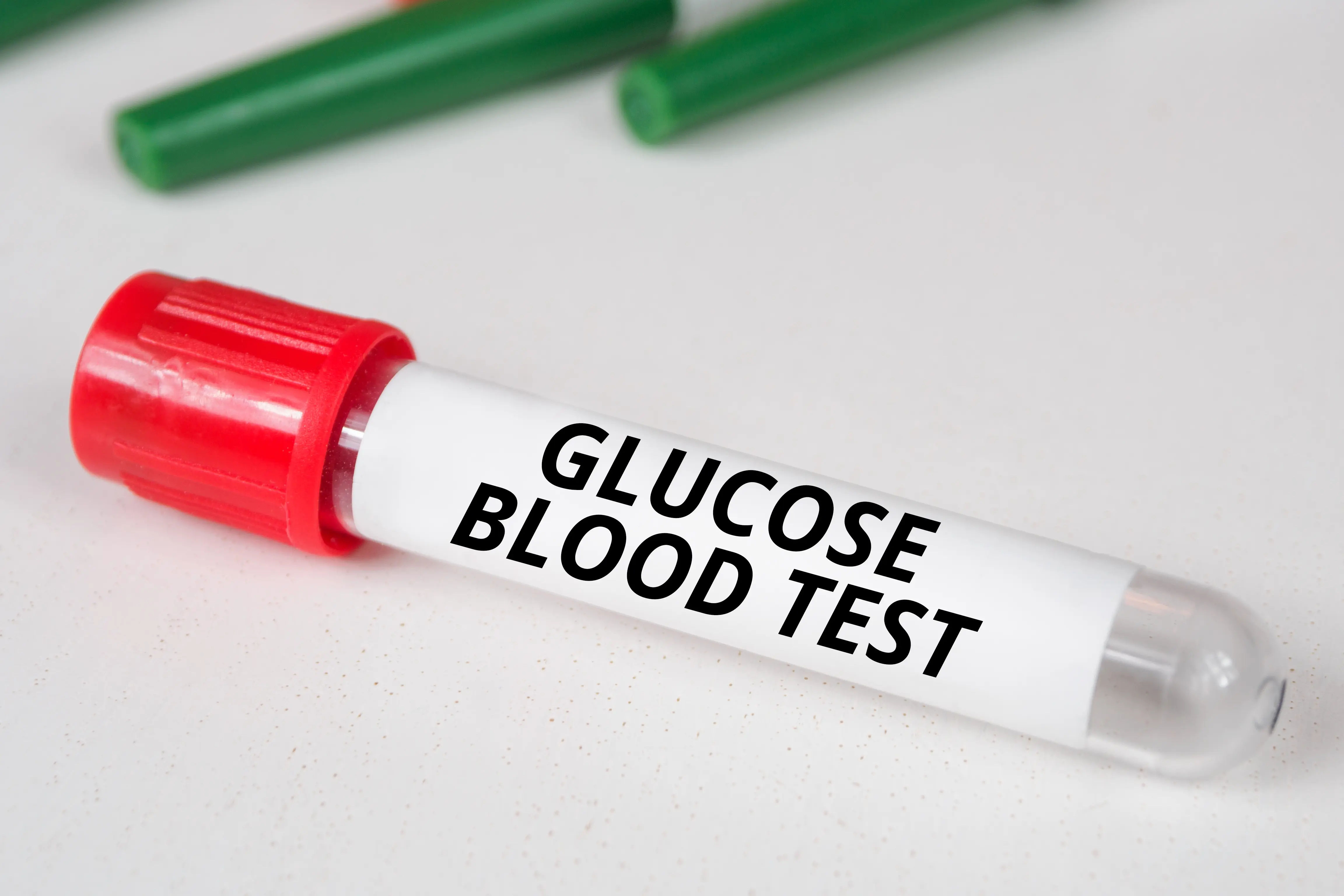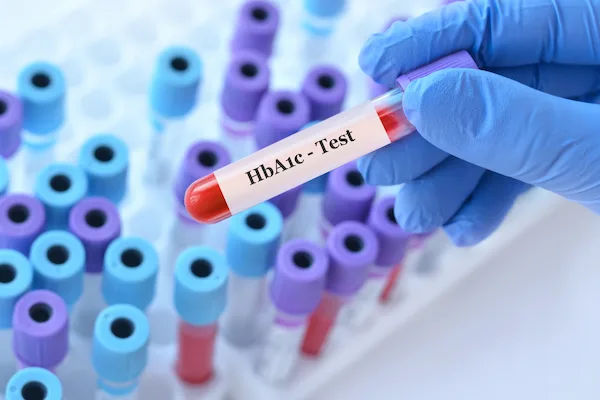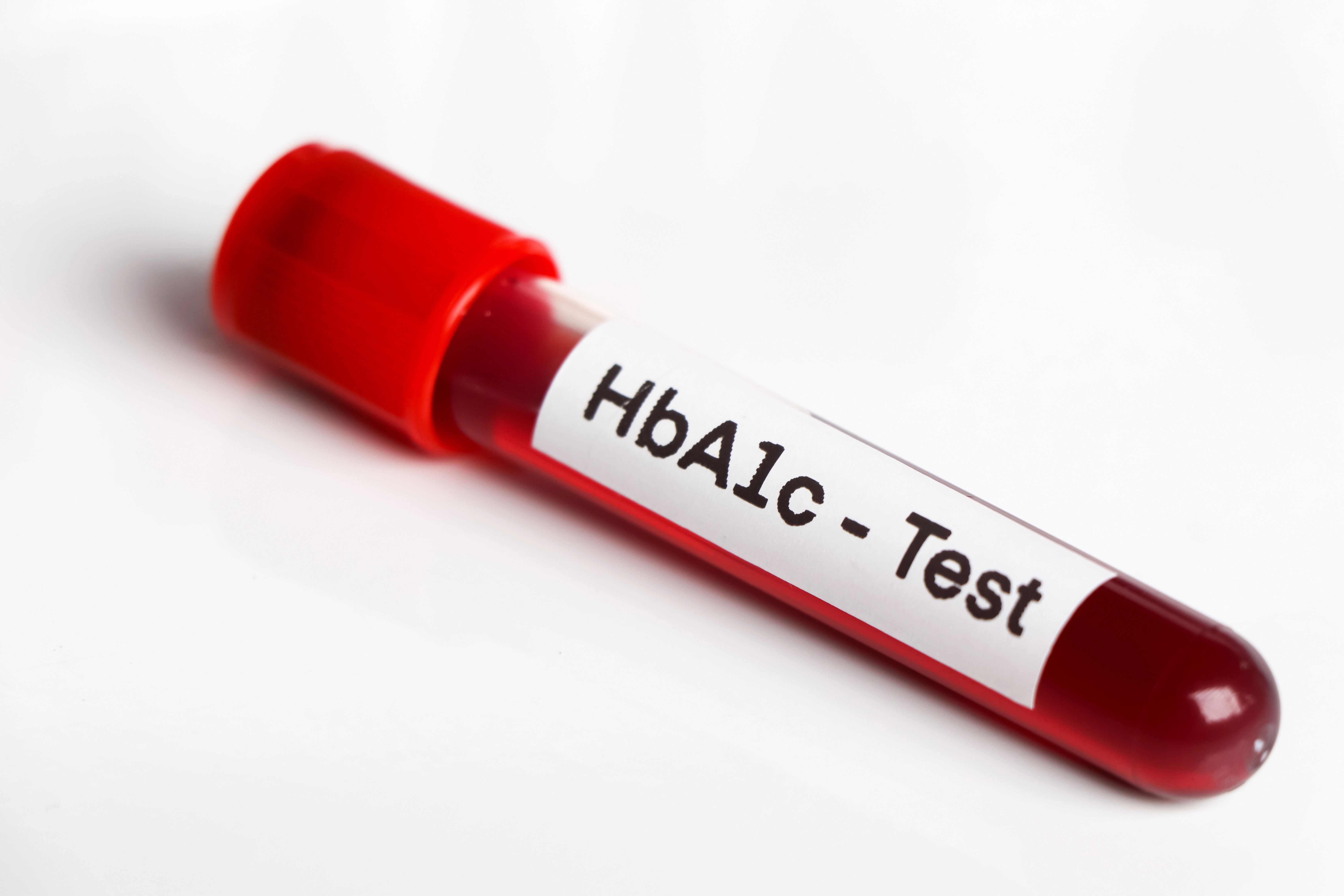Guide to Hba1c Test And Normal Value
Understand the HbA1c test, its role in diagnosing and managing diabetes, and what the normal values mean. Learn how this blood test reflects your average blood sugar levels.

Written by Dr. Shaik Abdul Kalam
Reviewed by Dr. J T Hema Pratima MBBS, Fellowship in Diabetes Mellitus
Last updated on 5th Sep, 2025

Navigating the world of health tests can be confusing, but understanding your HbA1c is a powerful step toward taking control of your metabolic health. Often called the A1c test or hemoglobin A1c, this simple blood test provides a crucial snapshot of your average blood sugar levels over the past two to three months. It’s a cornerstone for diagnosing prediabetes and diabetes and is the key metric for monitoring how well your management plan is working. Whether you're newly diagnosed, at risk, or simply health-conscious, knowing what this test means empowers you to have informed conversations with your doctor. This guide will break down everything you need to know—from what a normal hba1c value truly is and why it matters, to practical steps you can take to improve your results and protect your long-term health.
What Exactly is the HbA1c Test?
The HbA1c test measures the percentage of your hemoglobin—the protein in red blood cells that carries oxygen—that is coated with sugar (glycated). The process is simple: when glucose circulates in your bloodstream, it naturally attaches to hemoglobin. The higher your blood sugar levels, the more sugar-coated hemoglobin you have.
An HbA1c test is so valuable because it provides a long-term view. Unlike a fasting blood glucose test, which is just a snapshot of your level at a single moment, the A1c reflects your average blood sugar over the lifespan of a red blood cell, which is about 120 days. This makes it far less susceptible to daily fluctuations caused by a single meal or stressful event, offering a more stable and reliable picture of your overall glucose management.
Consult Top Diabetologist
Interpreting Your Results: Normal, Prediabetes, and Diabetes Ranges
Understanding your number is the most critical part of the process. The American Diabetes Association (ADA) defines the ranges as follows. It's important to remember that these are general guidelines, and your doctor may set individualized targets based on your age, health history, and other factors.
The Normal HbA1c Range
A result below 5.7% is considered normal. This indicates that your average blood sugar levels are healthy and your body is effectively managing glucose.
The Prediabetes Range
A result between 5.7% and 6.4% signals prediabetes. This is a critical warning sign. It means your blood sugar levels are higher than normal but not yet high enough for a type 2 diabetes diagnosis. Think of it as a yellow light—a chance to make lifestyle changes to prevent or delay the onset of diabetes.
The Diabetes Range
An HbA1c level of 6.5% or higher on two separate tests confirms a diagnosis of diabetes. This indicates that your average blood sugar has been consistently elevated, requiring a formal management plan involving diet, exercise, medication, and regular monitoring.
HbA1c Results and Their Meaning
HbA1c and Average Blood Glucose (eAG)
To make the number more tangible, your lab report may also include an Estimated Average Glucose (eAG). This converts your HbA1c percentage into the same units (mg/dL) you see on a home glucose meter. For example, an HbA1c of 6.5% correlates to an eAG of 140 mg/dL.
Why is This Test So Important?
The HbA1c test is more than just a number; it's a powerful predictor of future health. Consistently high blood sugar levels can, over time, damage delicate blood vessels and nerves throughout your body. This damage leads to the serious diabetic complications we aim to prevent, including:
- Heart disease and stroke
- Kidney disease (nephropathy)
- Nerve damage (neuropathy), especially in the feet and hands
- Eye damage (retinopathy) that can lead to blindness
- Poor blood flow to feet, increasing the risk of infections
By keeping your HbA1c within your target range, you significantly reduce your risk of developing these life-altering conditions.
How to Prepare for and Take an HbA1c Test?
One of the best features of the HbA1c test is its simplicity. It requires no special preparation. Unlike a fasting blood glucose test, you do not need to fast overnight. You can have the test taken at any time of the day, before or after eating.
The test itself is a standard blood draw. A healthcare professional will clean a spot on your arm, insert a needle into a vein to collect a blood sample into a vial, and then bandage the spot. The process is quick, usually taking less than five minutes. The sample is then sent to a lab for analysis.
Factors That Can Affect Your HbA1c Accuracy
While highly reliable, certain conditions can cause HbA1c readings to be inaccurate:
- Anemia and Hemoglobinopathies: Conditions that affect red blood cell count or the lifespan of hemoglobin (like sickle cell anemia) can skew results.
- Recent Blood Loss or Transfusion: This can alter the average age of your red blood cells.
- Pregnancy: Hormonal changes can affect red blood cell turnover.
- Kidney or Liver Failure: These conditions can also impact red blood cell survival.
If any of these factors apply to you, your doctor may rely more heavily on other tests, like fasting plasma glucose or oral glucose tolerance tests, for diagnosis and monitoring.
Strategies for Lowering Your HbA1c Level
If your test result is higher than desired, the good news is that you can take action to lower it. Improving your HbA1c level is a marathon, not a sprint, and involves sustainable lifestyle changes.
Dietary Changes for Better Control
What you eat has the most direct impact on your blood sugar. Focus on:
- Fiber-Rich Foods: Vegetables, fruits, legumes, and whole grains slow sugar absorption.
- Lean Proteins: Chicken, fish, tofu, and beans help you feel full and have minimal impact on glucose.
- Healthy Fats: Avocados, nuts, seeds, and olive oil support heart health.
- Limiting: Refined carbohydrates, sugary drinks, and processed foods.
The Role of Physical Activity
Exercise makes your body's cells more sensitive to insulin, meaning they can use the available sugar in your bloodstream more effectively. Aim for a mix of:
- Aerobic Exercise: 150 minutes per week of moderate activity (brisk walking, cycling, swimming).
- Strength Training: At least two sessions per week to build muscle, which helps burn glucose.Medication and Adherence
For many with diabetes, medication is a necessary and effective tool. This can include oral medications like metformin or injectable insulin. The most important factor is taking your medication exactly as prescribed by your doctor. Never adjust your dosage without consulting them first.
Stress Management and Sleep
Chronic stress and poor sleep can increase cortisol levels, which in turn can raise blood sugar. Prioritizing 7-9 hours of quality sleep per night and incorporating stress-reducing activities like meditation, yoga, or deep breathing can have a surprisingly positive effect on your glycemic control.
Conclusion
Understanding your HbA1c test and its normal value is a fundamental part of managing your metabolic health. This single number offers a clear, long-term view of your blood sugar control, serving as both a diagnostic tool and a report card on your lifestyle efforts. Whether your goal is prevention, management, or simply maintaining good health, knowing your HbA1c empowers you to make informed decisions. Remember, a result outside the ideal range is not a final verdict but a starting point for positive change. By working closely with your healthcare team and adopting sustainable habits, you can take proactive steps to improve your number, enhance your well-being, and invest in a healthier future. Schedule a conversation with your doctor today to get your HbA1c checked and understand what your number means for you.
Consult Top Diabetologist
Consult Top Diabetologist

Dr. Lakshmi Sanjitha Kakani
General Physician/ Internal Medicine Specialist
6 Years • MBBS, MD (General Medicine)
Visakhapatnam
Apollo 24|7 Clinic - Andhra Pradesh, Visakhapatnam

Dr. Suraja Nutulapati
General Physician/ Internal Medicine Specialist
10 Years • MBBS, MD (Internal Medicine)
Hyderabad
Apollo 24|7 Clinic, Hyderabad
(975+ Patients)

Dr. Arif Ahmed
General Physician/ Internal Medicine Specialist
9 Years • MBBS, MD (Genl. Med.)
Kolkata
MCR SUPER SPECIALITY POLY CLINIC & PATHOLOGY, Kolkata

Dr. Nilotpal Mitra
General Physician/ Internal Medicine Specialist
21 Years • MBBS, PGDGM ( Geriatric Medicine), ACMDC (an Advance course in Diabetes and cardiovascular diseases from PHFI and WHF )
Kolkata
MCR SUPER SPECIALITY POLY CLINIC & PATHOLOGY, Kolkata
(25+ Patients)

Dr. Arabinda Bera
General Physician/ Internal Medicine Specialist
20 Years • MBBS, PGDCC(CARDIOLOGY), CCEEDM(DIABETES)
Kolkata
MCR SUPER SPECIALITY POLY CLINIC & PATHOLOGY, Kolkata



.webp)
